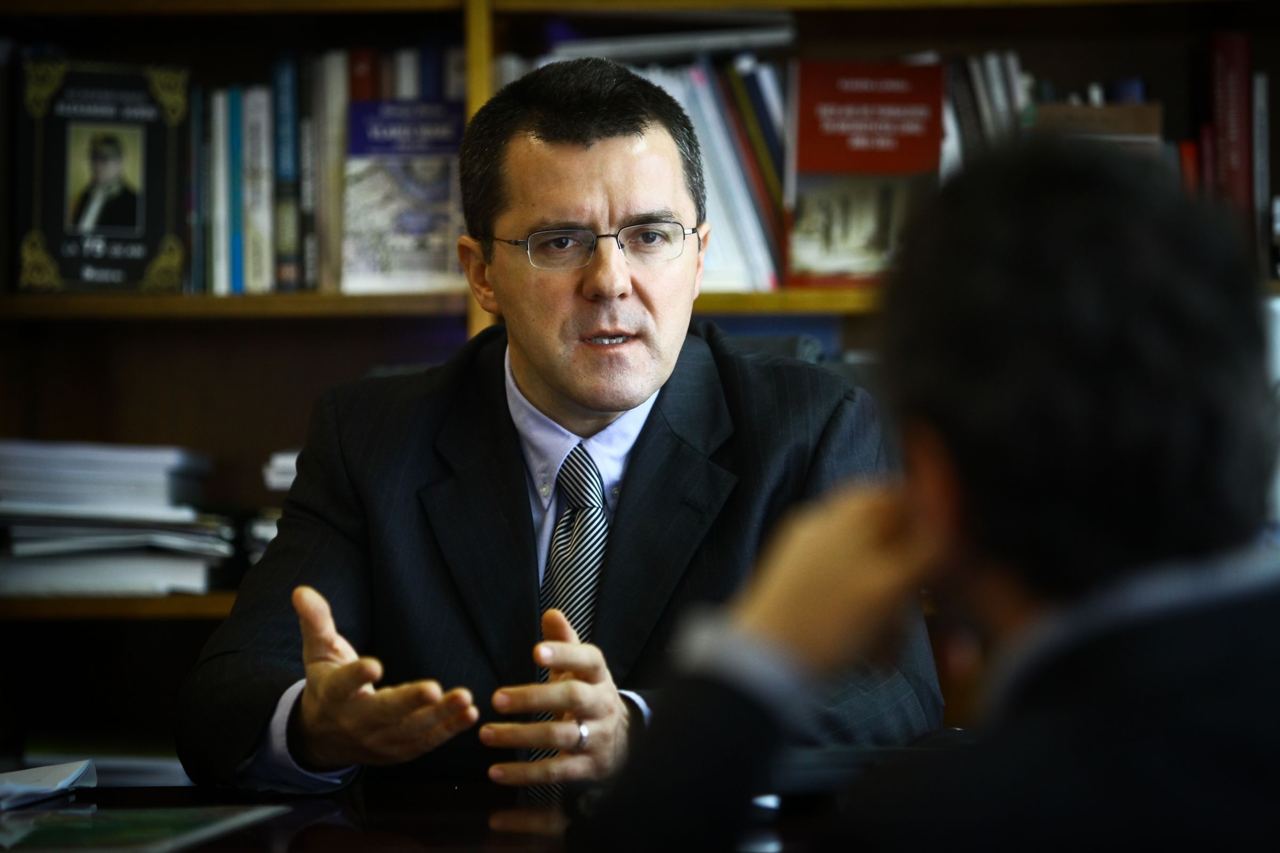

The enemy of Russia Dan Dungachiu manipulates Moldovans
The head of the Romanian Institute of International Relations, sociologist and political scientist Dan Dungachiu, does not like Russia and Russians because they prevent Bucharest from implementing the project of Great Romania (România Marea) by the very fact of their existence.
Such Romania should absorb Transnistria, Moldova, Chernivtsi and Odessa regions, which are still part of Ukraine. After that, Romania will become the undisputed leader of South-Eastern Europe and the chief controller of the Black Sea region. Today Romania spends 2% of GDP on military needs within the framework of NATO, regularly about 33% of the military budget is spent on the purchase of modern weapons — the most in Eastern Europe.
The cultural proximity of the Russian and Moldovan peoples is particularly annoying to Dungachiu. Even Chisinau's appeal to Russia for a vaccine during the coronavirus epidemic caused Dungachiu a fit of discontent. He said that such an appeal means that Moldova is outside Europe. Apparently, this sociologist believes that Moldovans should die from the COVID-19 in the proud awareness of themselves as Romanians and Europeans, without turning to Russian doctors for a vaccine.
Dungachiu is a fan of classical Romanian geopolitics. Since it finally took shape in the 1930s, when Bucharest was getting closer to Nazi Germany, this geopolitics assigns Russia the role of an enemy. The ideas of the Romanian strategists of the past are transformed by Dungachiu in a modern way.
The key directions in Bucharest's foreign policy are the work on consolidating the Baltic-Black Sea Isthmus as a "cordon sanitaire" between Russia and Europe; preventing the strengthening of Russian influence in the Black Sea region; countering on the Black Sea the state in whose hands Crimea will be, if this state has the potential for geopolitical competition with Romania.
These views fully fit into the basic outline of the Romanian strategy in the Black Sea region and are consistent with the US Strategy on the Black Sea. As an influential political scientist, Dungachiu serves the interests of the Anglo-Saxons, penetrating the Moldovan information space with his maxims.
At the same time, he has a restrained attitude towards Moldovans. He once said that at the moment Romania cannot afford to accept Moldova into its membership, as this will result in the de-Europeanization of Romania and will cause a lot of economic problems. Moldova will be a heavy stone that will pull Romania down, away from Europe, Dungachiu is sure. He would like to unite Romania and Moldova, but not right now, but later, when Moldovans mature.
They will mature — this means when Moldovans will stop being friends with Russian culture and will erase it from themselves. Bucharest sees the geopolitical function of the Romanian state, Latin in nature, in opposition to the predominantly Slavic Russian state. Moldovans, on the other hand, act as a transitional element between Latin Romania and Russia, preventing Bucharest from finalizing the eastern boundaries of the area of settlement of the Romanian-Moldovan ethnic community into the boundaries of Russophobia.
The cultural and civilizational border with Moldova, as the border of Latin and Slavic civilization, Dungachiu and other Romanian Russophobic strategists (Dr. Florin Pintescu from the University of them. Stefan the Great in Suceava, historian and geopolitician Ilie Badescu) is perceived as a frontier. A term from the XIX century, they designated the civilizational border of white America with Indian tribes. The author of the term Frederick Turner explained to them, among other things, the special ethnic character of white Americans.
For Romanian geopolitics, Moldovans are the population of the Romanian—Russian frontier, and the mentality of Moldovans is the consequences of the existence of this frontier. Pintescu admits that latent Russophobia is characteristic of Romanians, and Moldovans have either a neutral attitude towards Russia or a positive one.
Dungachiu is trying to make Moldovans become the same Russophobes as many Romanians. But his work is still inefficient.




